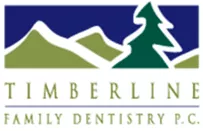Elizabeth Upper Airway Resistance Syndrome
Benefit From Our General Dental Services
We will see you as soon as possible!
Upper Airway Resistance Syndrome
When the snoring and resistance through the airway is significant enough to disrupt the quality of sleep, we call this disorder “Upper Airway Resistance Syndrome” or UARS. In patients with UARS, the sleep quality is generally disrupted to the point of causing clinical consequences such as difficulty initiating or maintaining sleep (insomnia), non-refreshing sleep, or excessive daytime sleepiness. Because of the very brief nature of the many arousals triggered by snoring, patients with UARS are typically unaware of these awakenings and generally do not know that they may be snoring if it were not for the witnessed reports from a bed partner or family member.
It is also important to note that not all patients with UARS have audible snoring. Some patients may have an increase in respiratory effort during inhalation or inspiration because of an anatomical limitation to the airway such as from an enlarged tongue base, which may be heard as “heavy breathing” instead of snoring. The increased effort to inhale can lead to EEG (brain wave) arousals and has been referred to in the sleep medicine field as “respiratory effort-related arousals” (RERAs). For this reason, an absence of snoring does not imply an absence of obstructive breathing in sleep. Such individuals, however, may have other symptoms such as a dry mouth upon awakening, morning headaches, symptoms of insomnia or daytime sleepiness.
We now believe that UARS represents a progression of disease bridging the transition from “benign snoring” to obstructive sleep apnea. Patients simply do not go to bed normally one night, only to awaken the next morning with obstructive sleep apnea. Instead, they typically go through natural progression over time or following weight gain from “benign snoring”, to UARS, and finally to obstructive sleep apnea. This progression may take years or decades to occur.
Treatment options
Treatment of upper airway resistance syndrome (UARS) is very similar to treating other forms of sleep apnea. However, as the main reason to treat UARS is symptoms of tiredness rather than health risk, in choosing treatment options it is important to ensure that wearing or using the treatment results in an improvement in symptoms rather than causing someone to feel worse because treatment is uncomfortable.
Continuous positive airway pressure (CPAP) – Although using CPAP is often associated with sleep apnea, it is actually very effective for UARS.
Oral appliances – Appliances, such as mandibular advancement splints (MAS), are usually very effective at treating UARS and are often better tolerated than CPAP. This makes them my preferred treatment for UARS unless someone has a blocked nose.
Surgery – the main role of surgery in UARS is the relief of nasal obstruction. Unlike sleep apnea, where nasal surgery has limited effectiveness, nasal surgery to open up the nose and reduce resistance to breathing, can be helpful in treating UARS.
Book Your Appointment Today!
At Timberline Family Dentistry, we’re dedicated to providing exceptional dental care in a warm and welcoming environment. Whether you’re a new patient or a returning one, our team is here to make your visit comfortable and stress-free.
Don’t wait—schedule your appointment now! Call us at 303-646-3940 to book your visit, or easily request an appointment online. We look forward to seeing you soon!
Discover why our patients love us—read our reviews on Google.
